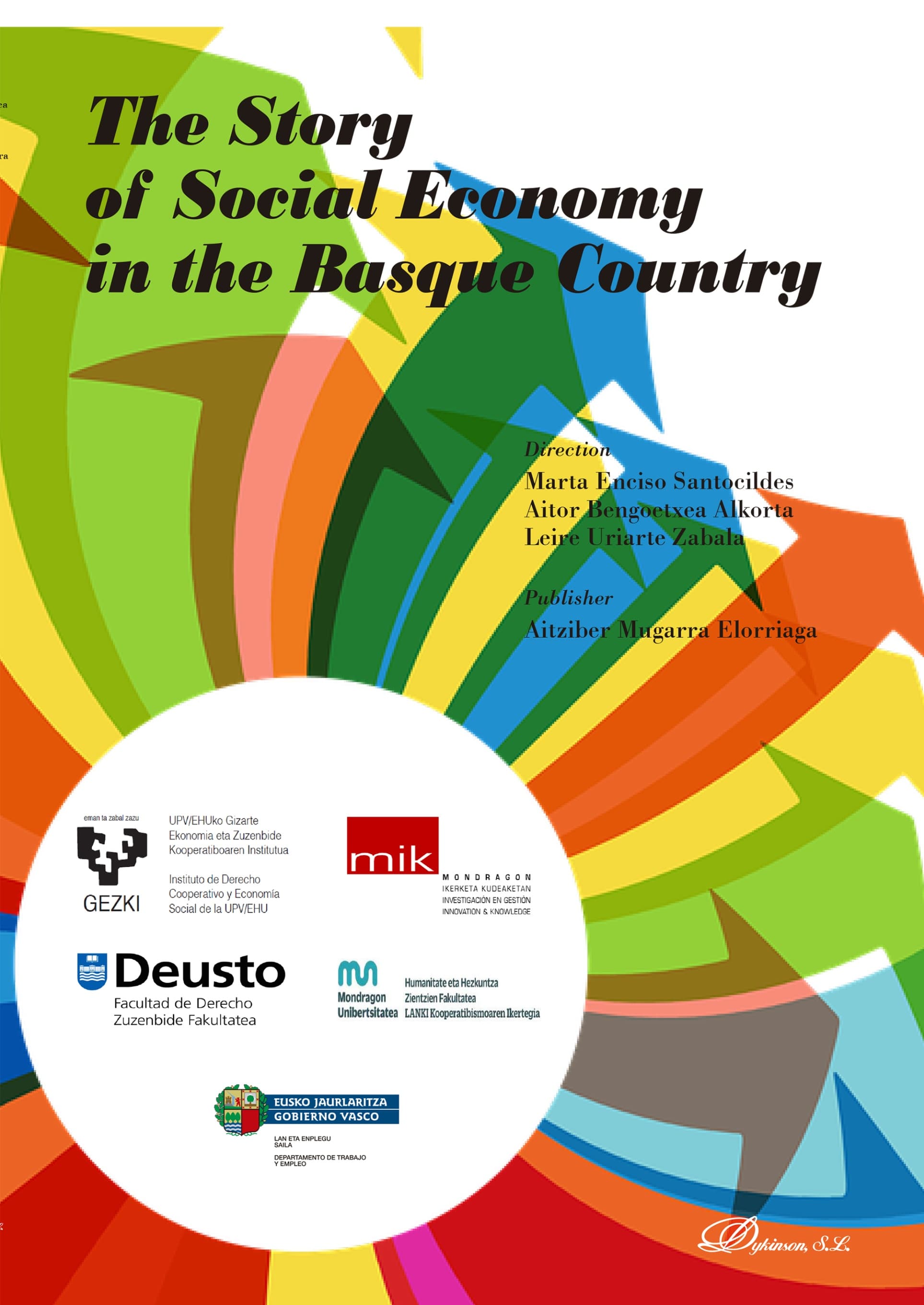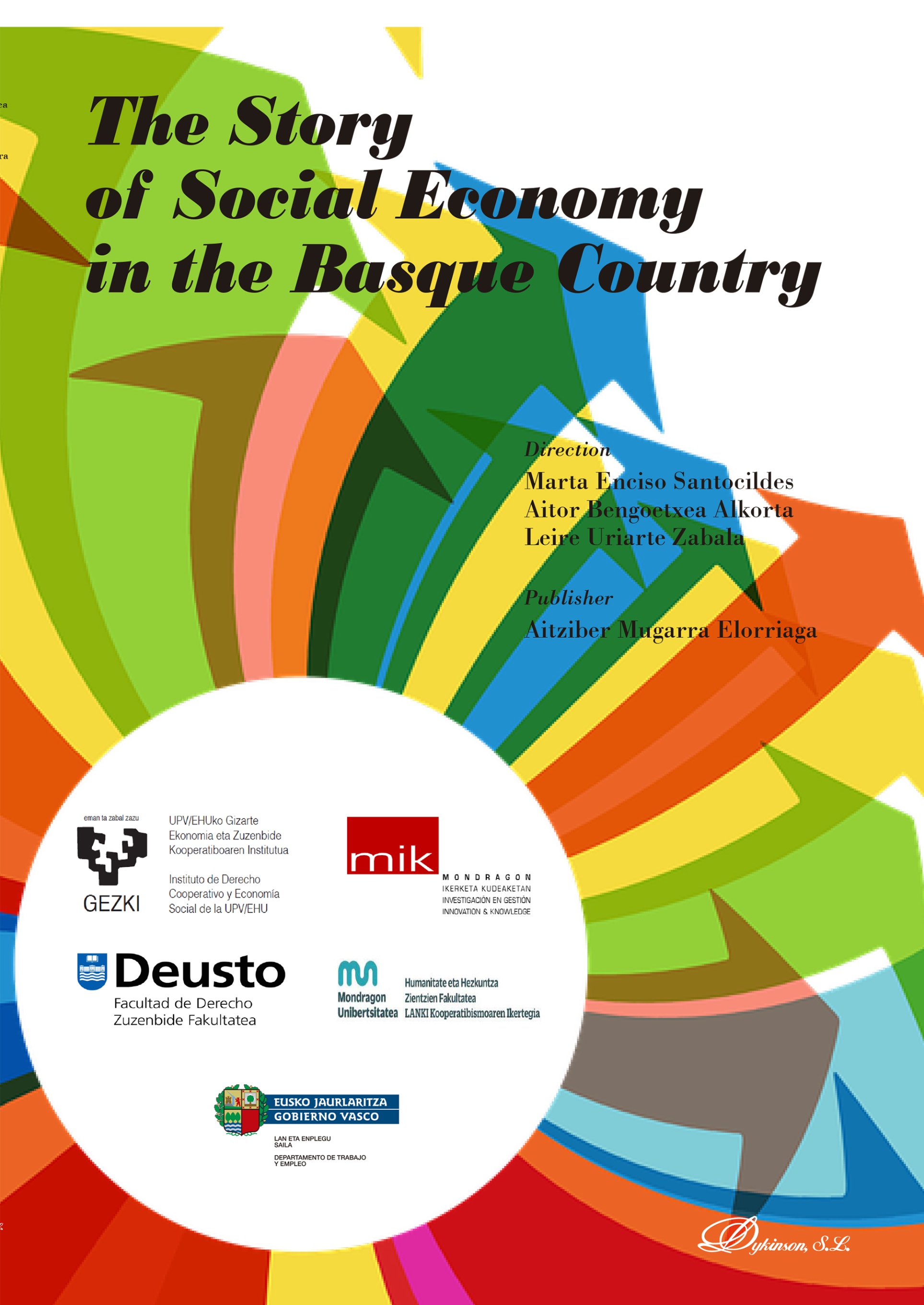AI-Generated Summary
Context and Background
The document, "The Story of Social Economy in the Basque Country," is a comprehensive exploration of the social economy's evolution in the Basque region, emphasizing its sustainable practices and community-driven initiatives. The work is led by notable authors in the field, including Marta Enciso Santocildes, Aitor Bengoetxea Alkorta, and Leire Uriarte Zabala, under the direction of Aitziber Mugarra Elorriaga and published by DYKINSON.
The Importance of Social Economy
The Basque Country has a distinguished history of social economy, characterized by a blend of cooperative models and worker-owned enterprises. This movement has become essential in addressing social needs while fostering economic resilience. Over 88% of social economy employment in the Basque Country comes from cooperatives, employing around 53,390 individuals. This sector contributes approximately 6% to the region's GDP, showcasing its significant economic impact.
Diversity of Cooperatives
Cooperatives in the Basque Country span multiple sectors, including industrial, agricultural, and educational fields. They operate under principles that prioritize social welfare and community engagement over mere profit maximization. The cooperative framework allows for democratic participation, where members have equal voting rights, fostering a culture of solidarity and mutual aid.
Sustainable Housing Initiatives
Housing cooperatives have emerged as a vital component of the social economy, providing affordable housing solutions while ensuring democratic governance. In recent years, the number of housing cooperatives has increased significantly, promoting access to dignified living conditions. These cooperatives not only address housing needs but also support community development through participatory planning and management.
Economic Resilience in Times of Crisis
The Basque cooperative model has demonstrated resilience during economic downturns. While other business forms have struggled, cooperatives have managed to maintain and even grow employment levels. For instance, during the economic crisis from 2008 to 2014, cooperatives saw a smaller decline in employment compared to other business types, reflecting their commitment to sustaining jobs and supporting local communities.
Community Engagement and Social Impact
Cooperatives in the Basque Country are deeply rooted in their communities, actively participating in local social initiatives. They are committed to reinvesting profits into community projects, education, and environmental sustainability. This commitment enhances social capital and fosters a culture of trust and collaboration among community members.
Future Challenges and Opportunities
Despite their successes, Basque cooperatives face ongoing challenges, including the need for increased visibility and advocacy in the broader housing market. The cooperative model is positioned to lead in sustainable housing initiatives by aligning with public policies aimed at enhancing access to affordable housing and social inclusion.
Conclusion
The social economy in the Basque Country serves as a robust model for sustainable practices that prioritize community well-being. Through cooperative frameworks, the region not only addresses economic challenges but also fosters social cohesion and environmental responsibility, making it a noteworthy example for Europe’s sustainable housing landscape.

